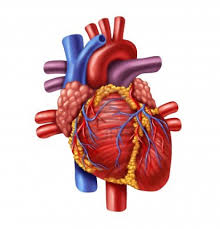 Every 25 seconds, somewhere in America someone experiences a coronary event, most typically a heart attack. Although 70 to 90 percent of these sudden coronary events are among men, heart attack is the leading cause of death in women 65 years of age and older. If you are a caregiver to an older loved one, this is an important risk to understand…but for a reason you may not expect. Ageism!
Every 25 seconds, somewhere in America someone experiences a coronary event, most typically a heart attack. Although 70 to 90 percent of these sudden coronary events are among men, heart attack is the leading cause of death in women 65 years of age and older. If you are a caregiver to an older loved one, this is an important risk to understand…but for a reason you may not expect. Ageism!
The care that older adults receive may be different from the care a younger individual receive, but age should not deny care that will offer better health and quality of life. Yet, that can happen. If you are that caregiver to an older adult who has just suffered a heart attack remember first that time is critical. A heart attack happens when the small vessels that bring blood to the heart muscle are sufficiently blocked that an area of the heart muscle is being starved of oxygen. The longer that vessel remains blocked more of the muscle will die. Ageism may be the obstacle to surgical intervention that can not only save an older adult’s life, but also restore better quality of life. Listen for the three words: “Not a candidate.”
Many physicians practice medicine by the birthdays, and there are still physicians who will look at an 80 year old patient as someone who is not a good candidate in their opinions. But, as Harrison Ford once said, “It’s not the birthdays; it’s the mileage.” In fact, there is perhaps greater variability in the relative fitness among 80+ year olds than any other age bracket. They should not all be lumped into the “unqualified” category. You may very well find one patient who truly is frail, but another who still runs marathons. The procedures to revascularize an older patient’s heart can be successful, but patients must be carefully selected.
If you are the advocate for your older loved one with a heart attack, listen for ageism, but be sensitive also to gender differences. Women tend to be smaller than men, and they also tend to have smaller blood vessels. This may preclude their being good candidates for surgery. A patient who has already had bypass surgery also can be a relatively poor candidate for revascularization. Some patients with other comorbidities like diabetes or dementia or pulmonary conditions also may not be good candidates. But it is not their birthdays alone that may disqualify them.
Even in such cases, there are some relatively new and less invasive procedures that may be very appropriate for those who otherwise may not be good candidates for conventional revascularization. There are new laser procedures that do not require a full “open procedure.” And we all have heard of balloon angioplasty or implantation of stents. There is even catheter-based aortic valve replacement as a new option for certain patients. You do not have to be a heart surgeon to be able to speak with your older loved one’s doctor about options. But as a caregiver you need to be very attentive to the ageism that may harm your loved one more than their medical condition.
Charlotte Bishop is a Geriatric Care Manager and founder of Creative Care Management, certified professionals who are geriatric advocates, resources, counselors and friends to older adults and their families in metropolitan Chicago. Please email your questions to info@cr eativecaremanagement.com.



